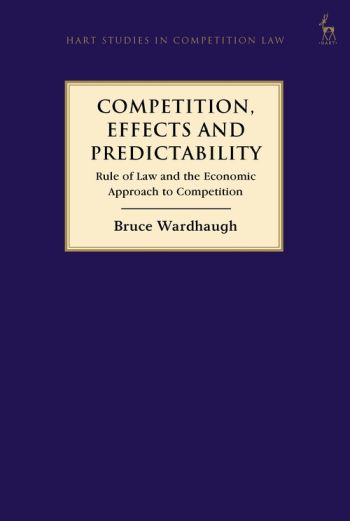
In the US and EU, legal analysis in competition cases is done on a case-by-case approach. In assessing the legality of a particular practice, this approach examines the welfare effects of that particular practice. While this analytic method has the merits of “getting the result right” by, inter alia, reducing error costs in antitrust adjudication, this analytic method comes at a cost of certainty, predictability and clarity in the legal principles which govern antitrust law. This is a rule of law concern.
This is the first book to explore this tension between Europe's “More Economic Approach,” the US's Rule of Reason, and the Rule of Law. The tension manifests itself in: the assumptions in and choice of analytic method; the institutional agents driving this effects-based approach and their competency to use and assess the results of the methodology they demand; and, the nature and stability of the legal principles used in modern effects-based competition analysis. The book forcefully argues that this approach to competition law represents a threat to the rule of law.
This book will be of interest to European and American competition law scholars and practitioners, legal historians, policy makers and members of the judiciary.